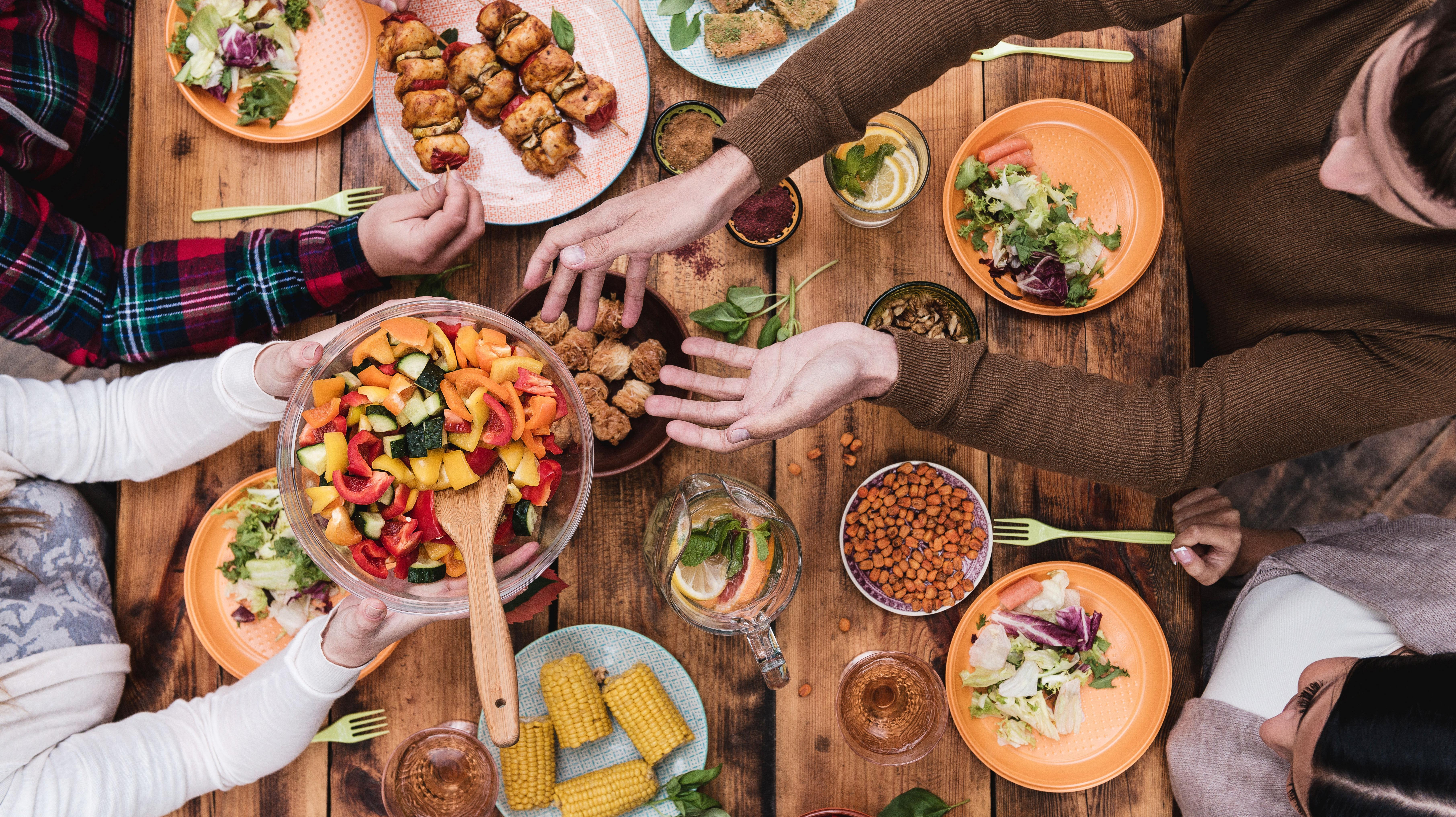When It's Okay To Not Feed Your Guests
We can all adopt the Swedish way of dining if we want to.
The Midwest is a magical, food-sharing place. Growing up, I could go over to certain friends' houses when they weren't even home and know that there would be snacks and drinks in their parents' fridge specifically for me. My parents are still big "we must feed everyone" people, always willing to offer a bite or a sip or a whole dang meal to anyone who passes through. So I understand more than anyone how hard it is to wrap one's head around this viral Reddit post about Swedish dining culture not being quite so generous.
A Reddit user commented on a prompt post about "the weirdest thing you had to do at someone else's house because of their culture/religion," saying that they were once at a Swedish friend's house during dinner time and they were not invited to join in on the meal—instead, they were left alone in their friend's room while the family ate together. As to be expected, it sent the internet aflutter. But I'm asking everyone to temper their outrage. It's not only a cultural difference but every person's right to not share their food if they don't want to, and that's okay.
Scandinavian dining culture
It's not that Swedish people or other Nordic populations aren't welcoming or accommodating to their guests, it's just that spontaneous dining decisions are not necessarily baked into the culture. The New York Times reports that in the days before proper food storage, Swedish people would have to harvest a year's worth of food in three to four months because of the cold weather. That meant that every meal for that year would be meticulously portioned out and accounted for. In those days, a spontaneous dinner guest would be taking valuable resources away from family members. Even though food storage conditions have since improved, it's a practice that's still built into the culture for many.
In The Independent, Swedish writer Linda Johansson confirms that this was indeed how she was raised, but that it never bothered her when she wouldn't be invited to dine with a friend's family if she was over at their house.
"As a child growing up in Gothenburg, I remember not really caring at all that I wasn't being fed – I just continued playing and had a nice, quiet time while the other family had their dinner," Johansson writes. "It was usually just a quick 'pause'; probably because they didn't want to mess up my family's plans."
In fact, Swedish professor Hakan Jonsson tells The New York Times that often Swedish families wouldn't feed other people's children in case the act came off as insulting to that child's parents. It could signal that others think they're not getting taken care of properly at home and need to be nourished elsewhere.
Why not all families share their food with guests
While these mealtime traditions are common in Scandinavian countries, the practices can extend to anyone's dining room. In some cases, it's about resources. Especially as children we may not be as attuned to other families' financial situations—and with rising grocery prices a family's food budget might not have the wiggle room to feed an extra mouth without notice. What may seem rude or unfair to a child as a guest in another's home may actually be a necessity for struggling parents, one that doesn't need to be explained.
Serving a child without talking to their parents first could also be dangerous. If that child has allergies or dietary restrictions that you're unaware of, you could easily unknowingly cause harm by serving them whatever you've cooked up.
As lovely and generous as it is for my parents to welcome anyone and everyone to our dining table, that often leaves little room for quality family time. If a guest isn't invited to join in on a meal, it might simply be because it's the only time a family gets to catch up with each other throughout the day, and they'd rather do that without their attention being split while trying to accommodate an extra person.
And these rules don't just apply to families. I live alone and sometimes I have my sights set all day on a mouthwatering dinner. If a friend happens to stop by while I'm enjoying it, I have no obligations to offer any up. It's my food, and I'll eat it how I want to.
If you're a generous, meal-sharing type, good on you. If you're open to having guests, I'll happily stop by to break some bread. But try not to judge others who may live by different rules. Keeping both your food and your mealtime to yourself is just fine, no matter what Redditors say.
